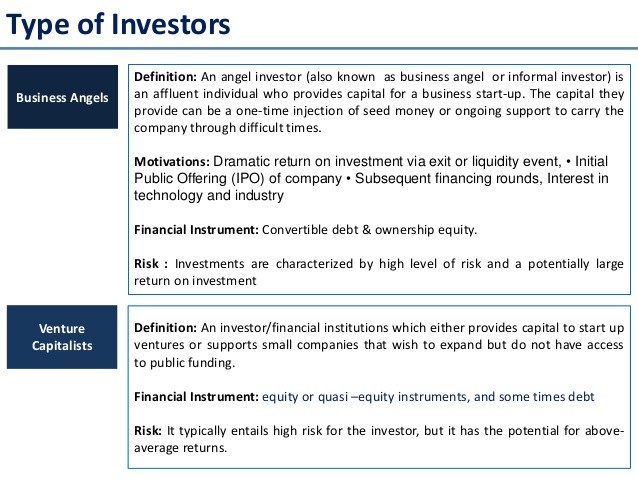Capitalist Concept Startup Compensation Salary vs Common Stock vs
Post on: 16 Март, 2015 No Comment

Startup Compensation: Salary vs Common Stock vs Preferred Stock vs Options
Entrepreneurship has grown in popularity amongst recent college graduates. My startup recently joined a office space incubator in Chicago and I spent the last week discussing various topics with fellow entrepreneurs and investors. One of the topics that drew the most confusion amongst my peers and their employees revolved around compensation.
In a series of four posts, I want to go through compensation strategy. This post focuses on the securities and methods commonly used to compensate startup employees. The intention for entrepreneurs to understand their capital options and employees to determine how much theyll be paid.
Whether you are deciding compensation or considering accepting it, use this equation: Compensation = Salary + Stock + Terms (negative value). After understanding all three factors, research the comparable salary in a public company to determine if the offer is fair.
Cash has the least risk because you know its worth and it is liquid. Since startups are risky, the only guaranteed money you have is the money already paid out. Since startups dont have a lot of cash and are still growing revenues by reinvesting gains, companies may offer royalties to developers or commission amounts to salesmen with a cap. While these should be counted as salary, I would discount them by at least 50% because in each of the cases your success is dependent on several other people in sales or development performing their job in a timely manner.
Here is the formula I would use to calculate the minimum salary required: Rent + Food + Living Expenses + Taxes = Minimum Salary Required = Cash + 0.5 (Commission or Royalties). Note, the 50% is generous discount rate (can be larger) and dependent on your situation. If you arent getting a reasonably predicable salary, pick a different job or lower your standard of living.
Common Stock, Preferred Stock, and Stock Options
Equity is one of the attractive features of startup culture; however, it is also what makes compensation risky. Few ventures exit; and without a liquidity event (e.g. IPO or acquisition), equity is worthless.
Normally, common stock is awarded to workers and preferred stock is given to investors. In the case of a liquidity event, preferred shareholders will get paid first. Hence, common stockholders in startup which have raised significant amounts of capital must be wary of the preferred shares capitalization and the estimated exit value to understand the amount they will receive: Exit Value — Debt — Total Preference = Residual Common Stock Value. The more money the company raises, the higher they will need to exit.
Capitalization = Shares Outstanding x Price Per Share. This equation is relevant when understanding your common stock portion as well: Your Current Ownership % = # of Shares Granted to You / Total Capitalization. You will be offered a number of shares or a percentage of equity at the appropriate valuation. If a startup is hesitant to provide you with any of this information, dont work there.
Preferred stock will have different different series (A to Z) depending on the round of capital raised. Typically, before or during Series A, employees will receive restricted stock because their equity percentages tend to be bigger. Ask to see the founders agreement and ask for the early execution clause to receive shares at a lower cost basis. Finally, file a section 83b Election within 30 days with the IRS. Additionally, long-term capital gains tax on stock in the USA is 15%.
Incentive Stock Options (ISOs) and Nonqualified Stock Options (NSOs)
Another type of equity is options. Most companies will have an options pool used to grant equity incentives. These can be thought of as call options which are exercised at a particular strike price and particular date. These are the securities that minted several hundred millionaires in Google and Facebook IPOs.
At the same time, options can bankrupt a person. For example, a company is worth $10M when options are granted to an employee with 0.75% options equity at an $1 strike price. Options Exercise Price = %/100 * Strike Price * Company Value or $75,000 in our example. That amount has to be paid by the employee when translating to common stock. Because the company is worth $50M or 5x the strike price at the exercise date, the option holder is bullish on the companys prospects, he/she has the money and is wants start the long-term capital gain clock, the decision to pay is made.

There are two types of options: ISO and NSO. ISOs can only be granted to employees at fair market value and are taxed at exit. Moreover, they can be treated as long-term capital gains (look into AMT IRS rules). NSOs are more flexible and is a term for any option that doesnt qualify as an ISO. These securities can be issued to anyone, even at a lower strike price and earlier exercise date. Its a pain for startups to issue ISOs, but employees must analyze tax advantages.
Vesting and Dilution Terms
Equity is subject to vesting or the time you receive shares and dilution or the percentage your equity is worth. Vesting is created to ensure that employees earn their equity and are incentivized to stay with the venture. Normally, there is an 1 year cliff with no vesting. From there, straight line vesting may occur monthly.
Every time a company raises money or options are exercised, equity holders are diluted. Additionally, the board can issue more shares diluting everyone. (Options Authorized + Future Investor Shares) / (Total Capitalization + Future Options Authorized + Future Investor Shares) = Dilution Factor. Know that the percent you have will decrease to make sure you get the largest share early.
At exit, (Current % Ownership + Future Vested % Ownership)/100 * Dilution Factor * Company Exit Price — Total Exercise Price = Capital Gains. Typically, options holders bet that the company will grow 5x its value in 3 years and 10x in 5 years. Negotiate for the shortest vesting and the most equity to minimize your risk.
Startups are called risky for several reasons. A lot of your compensation is left to chance and the key calculation you have to make is the risk factor. Hence, financially, Salary + Stock + Terms should be greater than a comparable roles compensation. If you dont have an appetite for risk or arent motivated by the culture of equity, dont accept the offer.
Lastly, I made many assumptions and am inexperienced so consult a tax account or attorney before making a decision.
Sources and Excellent Reads:














